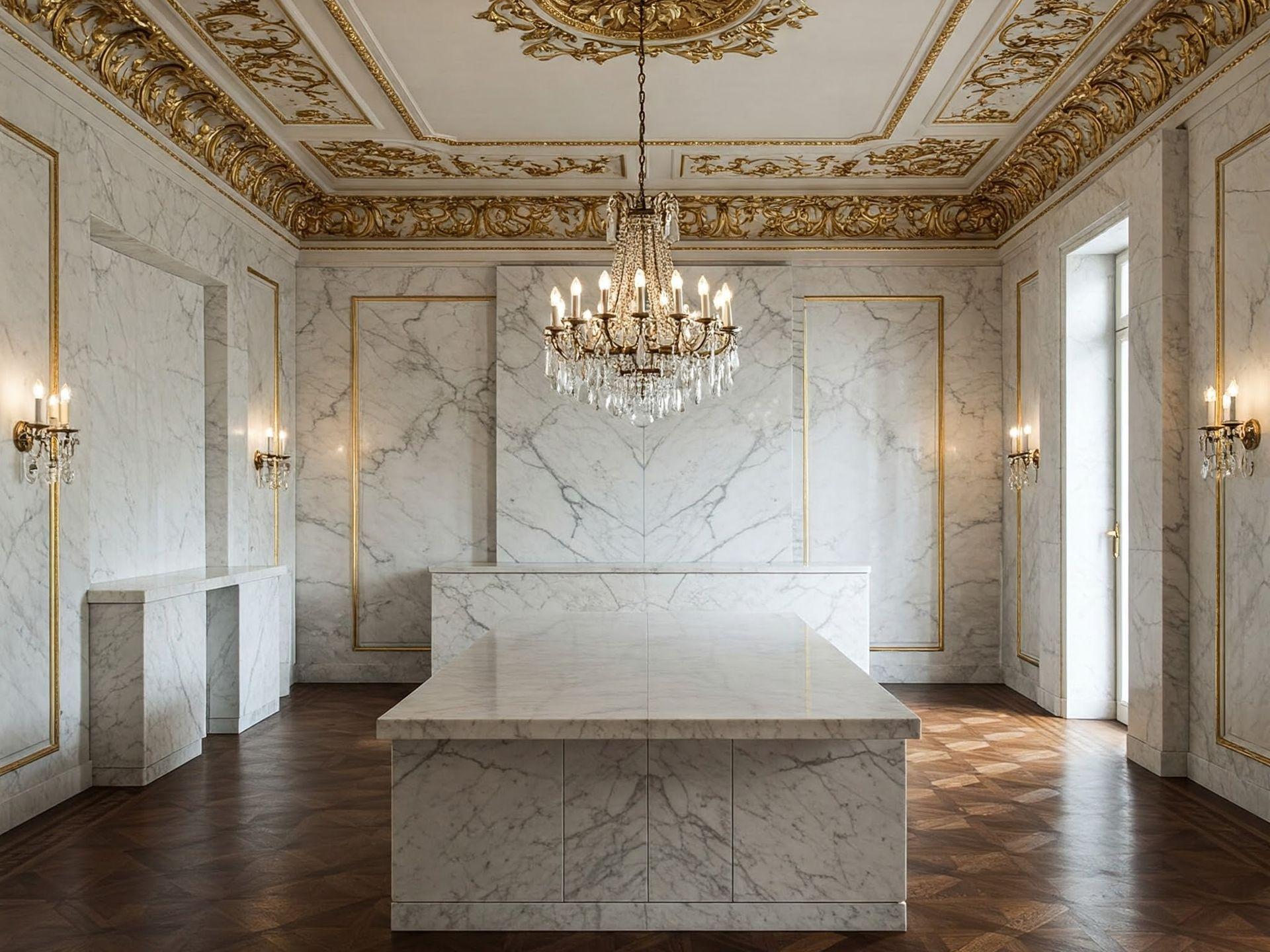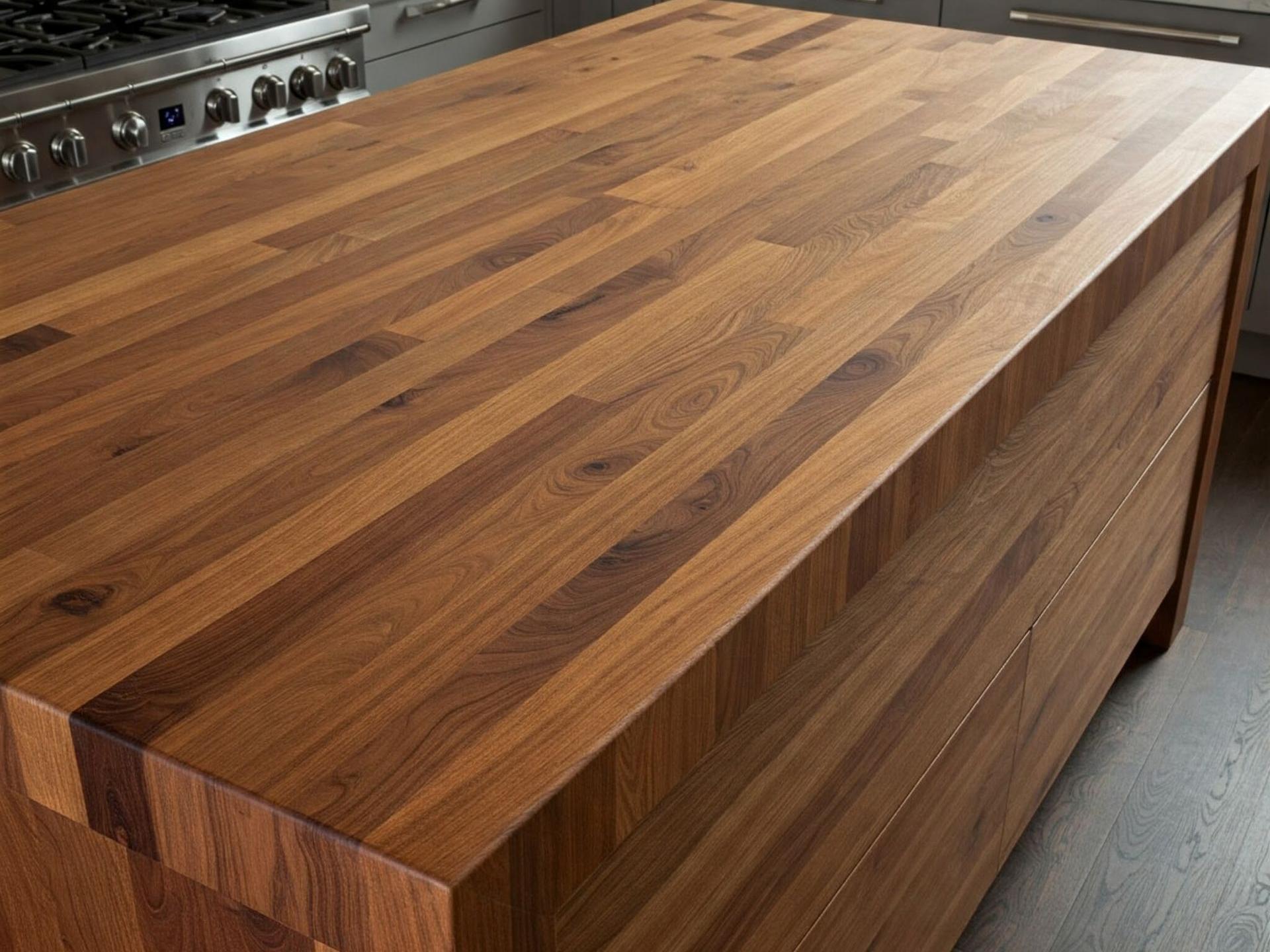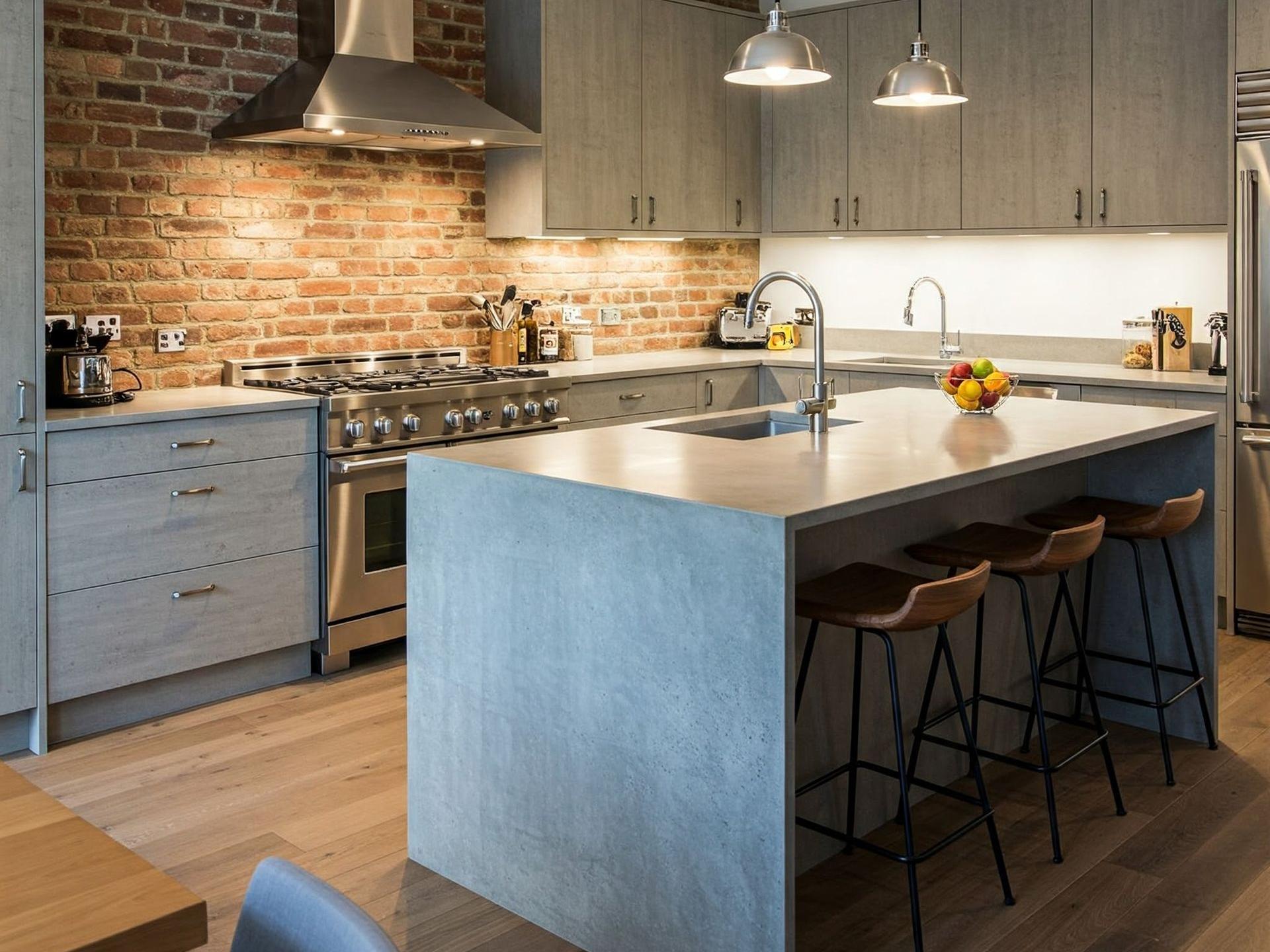The kitchen is often called the heart of the home, and your countertops are arguably the heart of the kitchen.
More than just a surface for preparing meals, they are a significant design element that impacts both the aesthetics and functionality of your space.
With a vast array of kitchen countertop materials available, deciding on the right one can feel overwhelming.
This guide will walk you through the most popular countertop options, discussing their pros and cons to help you choose the best kitchen countertop that fits your lifestyle, budget, and design vision.
Key Factors When Choosing Kitchen Countertops
Before diving into specific materials, consider these crucial factors:
- Budget: Countertop costs vary significantly. Establish a realistic budget per square foot for materials and installation.
- Durability: How resistant is the material to scratches, chips, heat, and impacts? Consider your cooking habits.
- Maintenance: Some materials require regular sealing, special cleaners, or careful handling to prevent stains and damage.
- Style & Aesthetics: The countertop material greatly influences your kitchen's look, from modern and sleek to warm and traditional.
- Heat Resistance: Will you be placing hot pots directly on the surface? Some materials handle heat better than others.
- Stain Resistance: Are you prone to spills of wine, oil, or acidic foods? Choose a material that won't easily stain.
- Resale Value: While not the primary factor, some materials can add more appeal to potential buyers.
Popular Kitchen Countertop Materials: Pros & Cons
Here's a look at common materials for kitchen countertops: -
1. Quartz (Engineered Stone)
Often mistaken for natural stone, quartz countertops are engineered by combining ground quartz crystals with resins, polymers, and pigments.
- Pros:
- Highly durable and non-porous (excellent stain resistance).
- Does not require sealing.
- Very low maintenance.
- Consistent colour and pattern options.
- Resistant to scratches and chips.
- Easy to wipe the sticky oil on quartz stone.
- Cons:
- Can be expensive, often comparable to granite.
- Not as heat resistant as sintered stone; exposure to high temperatures (exceed 200°C) can lead to damage such as scorching or discolouration due to the resin content.
- Not ideal for outdoor applications since UV exposure can dull the color because of the resin.
- Ideal For: Busy kitchens, families, those cook daily and seeking low maintenance and consistent appearance.
If quartz stone suits your requirements, please check out our quartz stone catalogue.
2. Sintered Stone (A.K.A Porcelain Slab)
Sintered stone is a relatively new type of countertop material, made by compacting minerals under intense heat and pressure to mimic natural stone formation.
-
Pros:
- Extremely durable and resistant to scratches, heat, stains, and UV rays.
- Non-porous and easy to clean.
- Available in large format slabs, minimizing seams.
- Can be used indoors and outdoors.
-
Cons:
- Can be expensive, often comparable to high-end granite or marble.
- Edges can be prone to chipping.
- Limited edge profile options compared to other materials.
- Ideal For: Modern kitchens, outdoor kitchens, those prioritizing durability and low maintenance, and those seeking a sleek, contemporary look.
If sintered stone suits your requirements, please check out our sintered stone catalogue.
3. Granite
A natural stone quarried from the earth, granite countertops offer unique patterns and colors, making each slab one-of-a-kind.
- Pros:
- Extremely durable and resistant to scratches and heat.
- Adds significant value and natural beauty to a kitchen.
- Wide variety of colours and patterns.
- Cons:
- Requires periodic sealing (typically annually) to maintain stain resistance.
- Additionally, you could consider applying a soak-in impregnator treatment to enhance the stain resistance and prolong its effectiveness. Keep in mind that this treatment will incur an additional cost.
- Can chip or crack under heavy impact (though rare).
- Porous nature means spills need to be wiped up relatively quickly.
- Variations in slabs can make matching challenging for large projects.
- Ideal For: Homeowners who appreciate natural beauty, durability, and are comfortable with some maintenance.
4. Marble

Known for its luxurious look and elegant veining, marble is a timeless natural stone, though often seen as a premium option for kitchen surfaces.
- Pros:
- Unparalleled beauty and classic aesthetic.
- Heat resistant.
- Adds significant value.
- Cons:
- Very porous and susceptible to staining and etching (damage from acidic substances like lemon juice or vinegar).
- Softer than granite or quartz, making it more prone to scratches and chips.
- Requires regular sealing and careful maintenance.
- Could be expensive depend on scarcity, rarity & country of origin.
Ideal For: Those prioritizing high-end aesthetics over durability, perhaps in areas less prone to heavy use (e.g., a baking station) or for homeowners willing to embrace its patina over time.
5. Laminate
Made by bonding plastic layers to particleboard or MDF, laminate countertops are the most affordable kitchen countertops option.
- Pros:
- Very budget-friendly.
- Available in a vast array of colours, patterns, and finishes, mimicking other materials.
- Easy to install (Compare to stone).
- Cons:
- Susceptible to scratches, chips, and burns.
- Difficult to repair if damaged.
- Edges can sometimes delaminate over time.
- Lower perceived value compared to stone or solid surface.
Ideal For: Budget-conscious renovations, rental properties, or temporary solutions.
6. Solid Surface (Arcylic base)
Brands like Corian, Staron (Samsung) are well-known solid surface countertops. These are made from acrylic or polyester resins and fillers.
- Pros:
- Seamless appearance (seams are nearly invisible).
- Non-porous (excellent stain resistance).
- Easy to clean and maintain.
- Damages (scratches, burns) can often be sanded out.
- Available in many colours.
- Cons:
- Less resistant to heat and scratches than natural stone or quartz.
- Stains appear on the scratches.
- Can be moderately expensive, though generally less than natural stone or quartz.
- Ideal For: Those seeking a seamless look, low maintenance, and moderate durability.
7. Wood / Butcher Block

Offering warmth and natural beauty, wood countertops require regular maintenance but can be a striking design choice.
- Pros:
- Adds warmth and character.
- Can be sanded and refinished if scratched or damaged.
- Relatively easy to install for some applications.
- Sustainable options available.
- Cons:
- Requires regular oiling or sealing to prevent water damage, stains, and bacteria growth.
- Susceptible to scratches, dents, and burns.
- Not ideal around sinks unless meticulously sealed and maintained.
Ideal For: Specific areas like islands or baking stations, or for homeowners committed to regular maintenance for a warm aesthetic.
8. Concrete

Pouring and finishing concrete on-site or pre-casting slabs allows for custom shapes, colours, and inlays.
- Pros:
- Highly customizable in terms of shape, size, colour, and texture.
- Durable and heat resistant.
- Modern, industrial aesthetic.
- Cons:
- Requires regular sealing to resist stains and etching.
- Can crack over time (though often considered part of its character).
- Very heavy, requiring sturdy cabinet support.
- Installation is complex and often expensive.
Ideal For: Modern or industrial designs, those seeking a highly customized and unique look.
9. Stainless Steel
Commonly found in commercial kitchens, stainless steel countertops offer a sleek, modern, and highly durable surface.
- Pros:
- Extremely durable, heat resistant, and non-porous.
- Hygienic and easy to clean.
- Modern, industrial aesthetic.
- Cons:
- Can scratch easily (though scratches can blend into a patina over time).
- Shows fingerprints and smudges.
- Can be noisy.
- Can dent.
- Expensive.
Ideal For: Modern kitchens, those prioritizing hygiene and extreme durability over scratch resistance.
Making Your Final Decision
Choosing your kitchen countertop is a big decision. Consider these final tips:
- Get Samples: See and feel the materials in your own kitchen lighting.
- Visit Showrooms: See larger slabs and installed examples.
- Consider Your Lifestyle: Be honest about how you use your kitchen and how much maintenance you're willing to do.
- Get Multiple Quotes: Pricing for both materials and installation can vary significantly between suppliers and fabricators.
Conclusion
There is no single "best" kitchen countertop material for everyone. The ideal choice depends entirely on your individual needs, priorities, and budget. Whether you prioritize the natural elegance of granite, the low maintenance of quartz, the affordability of laminate, the high-performance of sintered stone, or the unique look of concrete or wood, understanding the characteristics of each option is the first step to finding the perfect fit for your dream kitchen.
Invest time in researching and exploring your options, and you'll find a beautiful and functional kitchen countertop that you'll love for years to come.